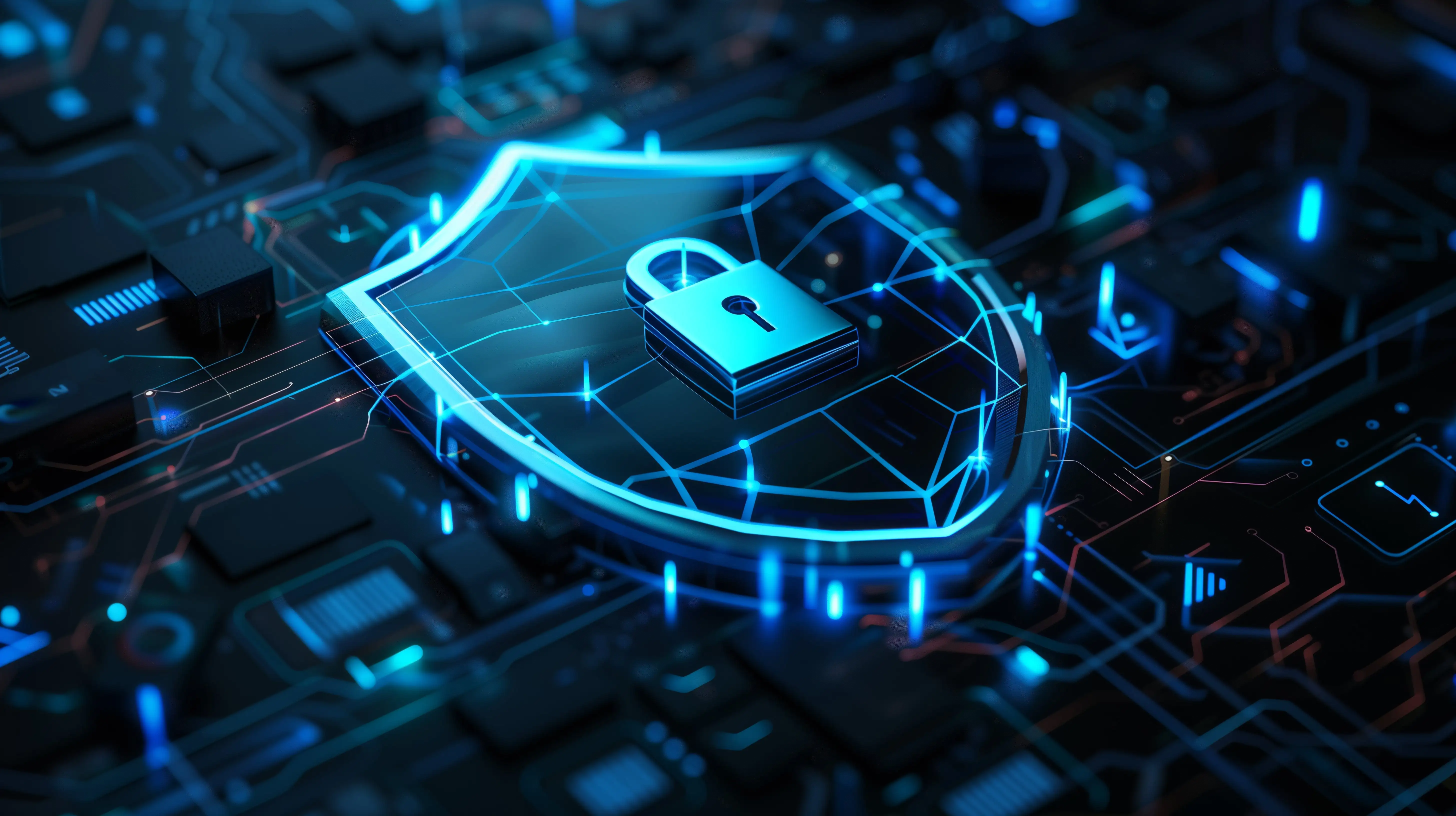What to Do After a Cyber Attack on a Hospital: A Recovery Guide
Cyber threats in the modern digital landscape of healthcare are taking leaps and bounds. Although organizations such as hospitals and medical institutions have placed tremendous dependence on digital systems, this has made cybersecurity in healthcare of paramount importance. Unluckily, a cyber attack on a hospital can be a significant threat to public health, disrupting essential medical services, compromising patient data, and violating compliance standards.
An effective response plan will be important to mitigate damage, ensure patient safety, and get operations back up and running. This guide will guide you on how to respond, recover, and prevent future attacks by integrating ''healthcare cybersecurity best practices'' and insight from top healthcare cybersecurity companies.
1. Immediate Response: Containing the Cyber Attack
Critical hours occur when a cyberattack strikes a hospital. The first hour focuses more on damage control, data protection, and containing the incident.
A. Call for the Activation of the Incident Response Plan
Hospitals must, therefore, have what is referred to as an incident response team, or simply 'hospital cybersecurity company.' If an internal team is not available, an arrangement with 'health security partners' is necessary for quick response.
B. Isolate Affected Systems
- Isolate infected systems to prevent the spread of malware.
- Prevent unauthorized remote access.
- Determine the scope of breach of patient information, billing, and emergency services.
C. Preserve Digital Evidence
All log files, system logs, and suspicious emails should be preserved for forensic analysis by ''healthcare cybersecurity companies''
D. Report to Health Care Security Agencies
- The organization's internal security teams and IT personnel
- All government agencies and ''safety agencies in health care'' (HHS, CISA, or FBI for the United States).
2. Assessing the Damage and Cybersecurity Risks
Once containment is achieved, hospitals need to assess the impact of the breach.
A. Identify Stolen or Compromised Data
- Patient medical records (EHRs).
- Financial details (insurance and billing data).
- Operational systems (supply chain, scheduling, and medical research data).
B. Evaluate Service Disruptions
Hospitals must determine:
- Whether emergency services were disrupted.
- If critical medical devices were compromised.
- The impact on patient care.
- Understand the 'healthcare cybersecurity threats', to plan recovery.
C. Notify Patients and Authorities
Organizations are mandated by healthcare cybersecurity regulations to alert authorities of incidents. The Healthcare Cybersecurity Act ensures laws are followed to avoid legal action.
3. System Recovery and Restoration
The recovery phase is crucial for returning to normal operational capacity without any risk in the future.
A. Recover from Backups
One of the most ''health industry cybersecurity practices'' is a well-designed backup system. If the backups are unchanged:
- Restore data from the latest clean version.
- Rebuild the compromised systems once the malware has been removed.
B. Lock down System Security Prior to Bringup
Hospitals must take the following measures before reconnecting systems:
- Apply security patches
- Reset passwords, and multi-factor authentication must be enforced.
- Execute a full security audit to be ''healthcare cybersecurity compliant''
C. Conduct a Comprehensive Cybersecurity Audit
Hospitals should collaborate with ''healthcare cybersecurity services.''
- Identify attack vectors (phishing, ransomware, DDoS, etc.).
- Assess ''cybersecurity risks in healthcare'' to prevent recurrence.
- Implement security updates as per ''healthcare cybersecurity standards''.
4. Strengthening Cybersecurity to Prevent Future Attacks
Recovering from an attack is not enough—hospitals must implement proactive security measures.
A. Adopt Advanced Cybersecurity Solutions
Investing in ''healthcare cybersecurity solutions'' can enhance hospital defenses:
- AI-driven threat detection to analyze network activity.
- Endpoint security for protecting all connected devices.
- Zero-trust security models to restrict unauthorized access.
B. Implement Strict Access Controls
According to ''best practices in healthcare'', hospitals must:
- Utilize Role-Based Access Control (RBAC) for limiting access to sensitive data.
- Implement multi-factor authentication (MFA) across all networks.
- Regularly audit and eliminate obsolete user credentials.
C. Cybersecurity Awareness Training
One of the significant ''cybersecurity threats in healthcare'' is human error. Hospitals must:
- Educate employees to identify phishing and ransomware attacks.
- Host mock cyber attack exercises to improve response capabilities.
- Update healthcare professionals on 'cybersecurity in healthcare' trends.
D. Stay Compliant with Cybersecurity Regulations
Healthcare cybersecurity compliance ensures that any firm maintains both legal and operational security through compliance. Healthcare cybersecurity compliance relates to:
- HIPAA for data protection.
- GDPR for international healthcare organizations.
- NIST for cybersecurity frameworks.
Being compliant with 'healthcare cybersecurity regulations' keeps away fines or lawsuits.
5. Outsourcing to Experts for Long-Term Cybersecurity
The 'importance of cybersecurity in healthcare' cannot be overemphasized. Hospitals require long-term solutions, and this is where 'top healthcare cybersecurity companies' come into play.
A. Partner with a Reputable Healthcare Cybersecurity Company
Most hospitals lack the in-house cybersecurity expertise to address the challenges that come with cyber threats. The 'hospital cybersecurity companies' come in handy. They provide:
- 24/7 cyber threat monitoring.
- Regulatory compliance support.
- Incident response planning.
B. Leverage Managed Healthcare Cybersecurity Services
With 'healthcare cybersecurity services', hospitals enjoy:
- Proactive security risk management.
- Scheduled vulnerability assessments and penetration testing.
- Cybersecurity awareness training ongoing for staff members.
C. Future-Proof Hospital Cybersecurity
Cyber threats are continuously evolving. In this regard, hospitals should:
- Update their incident response plan constantly.
- Invest in the latest security technologies.
- Coordinate with 'health security partners' for cyber resilience.
6. Network Security and Infrastructure
One of the best ways to avoid future cyber incidents is through strengthening hospital networks and IT infrastructure. Several ''healthcare cybersecurity threats'' take advantage of old systems, low-quality passwords, and unprotected devices. Strong security mechanisms ensure ongoing protection of patient data and hospital services.
A. Update and Patch Legacy Systems
Legacy hospital IT systems are sweet spots for cyber hackers. Hospitals should;
- Update all software, operating systems, and security patches constantly.
- Retire unsupported legacy systems that no longer receive security updates.
- Use network segmentation to isolate older systems and prevent lateral attacks.
B. Strengthen Endpoint Security for All Devices
Hospitals use various connected devices, from smart medical equipment to staff laptops. Every connected endpoint is a potential entry point for cybercriminals.
- Deploy endpoint detection & response (EDR) to monitor suspicious activity.
- Implement device authentication measures for all users.
- Use AI-driven security solutions for real-time malware detection.
C. Establish Good Network Security
Hospitals should embrace the "healthcare cybersecurity best practices" such as:
- Zero-trust architecture, meaning that no user or device should automatically be trusted.
- Advanced firewalls and IDS to detect any threats.
- Role-based network access allows limited system access by only necessary users.
These implementations ensure adherence to "healthcare cybersecurity standards." At the same time, this reduces risks involved in cybersecurity health.
Conclusion: The Future of Cybersecurity Health
The ''importance of cybersecurity in healthcare'' will only increase as cyber threats evolve. Healthcare cybersecurity solutions and healthcare cybersecurity companies are no longer a choice, but a must.
Hospitals that adapt to ''best practices in healthcare'' today will be ready for the threats of tomorrow. The constant evolution of their cybersecurity strategy will help them protect patient data, hospital operations, and public health from cyber criminals.
Protect Your Hospital with Gini!
Don't wait for a cyber attack—strengthen your hospital’s security today!
- Advanced Threat Detection
- Regulatory Compliance Support
- 24/7 Cybersecurity Monitoring
- Get a Free Security Consultation with Gini






